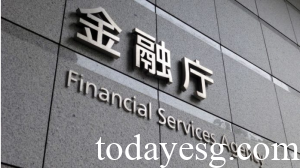Overview
As an investment vehicle for ESG securities and ESG bonds, ESG funds have become the core products of the global asset management industry. The naming and information disclosure of ESG funds have also become the focus of regulators.
Although sustainable funds and ESG funds are already well known to investors, there is still a lack of standard fund classification rules around the world. At present, the European Sustainable Financial Disclosure Regulation is the most widely used and standardized classification rule.
ESG Funds Distribution
The distribution of global ESG funds shows an imbalanced characteristic. Using ESG fund size as an indicator, European ESG funds account for about 80% of the total ESG funds, while American and Asian ESG funds account for 10% respectively.
The internal classification of ESG funds also exhibits imbalanced characteristics, for example, Article 8 funds based on the European Sustainable Financial Disclosure Regulations account for 95% of the total size of ESG funds in Europe, while Article 9 funds only account for 5%. This is partly due to the strict conditions of Article 9 funds, and partly due to asset managers relabeling some Article 9 funds to avoid greenwashing.
According to PwC, the majority of ESG funds are still actively managed (88%), with a relatively low proportion being passively managed. As the market’s emphasis on index investment increases, passively managed funds may increase in the future.
ESG Funds Naming
Against the backdrop of increasing market attention to the issue of greenwashing, regulatory agencies have established numerous rules for the naming of ESG funds. For example, the European Securities and Markets Authority requires ESG funds to invest at least 80% of their funds in the ESG field when using related terms such as environment, society, governance, and sustainability, and to exclude controversial listed companies.
In fact, the regulation for ESG fund naming does not exist independently. The disclosure of investment goals, investment methods of ESG funds also requires guidance. The effectiveness of these guidelines is established in the development of a series of ESG regulations such as sustainable information disclosure for enterprises and sustainable classification of economic activities.
ESG Funds Performance
Since 2019, ESG funds have outperformed traditional funds. In 2023, the median investment return of ESG funds is 12.6%, while the median investment return of traditional funds is 8.6%.
In passive investment, ESG ETFs also perform better. In 2023, the median investment return of ESG ETFs is 10.5%, while the median investment return of non ESG ETFs is 10.1%.
When facing systemic risks in the market, ESG funds still perform better. The European Securities and Markets Authority analyzes funds during a significant market downturn in March 2020 and finds that ESG funds performed relatively better in both the downward and recovery stages.
Is there a situation where ESG funds are underperforming traditional funds? After a significant increase in global energy prices in 2022, the energy industry allocated by traditional funds performed better than the clean energy industry allocated by ESG funds. This phenomenon only occurred once in the five years from 2019 to 2003.

Eurosif Responses to ESG Funds Naming Rules
The European Sustainable Investment Fora (Eurosif) issues a document giving comments on the guidelines of the European Securities and Markets Authority (ESMA) on the naming of ESG funds

EFAMA Commented on ESG Funds Naming Rules
The European Fund and Asset Management Association (EFAMA) issues a report expressing its opinion on the ESG funds naming rules issued by the European Securities and Market Authority (ESMA)

Application and Challenges of Pension Funds in TCFD
Pensions for Purpose is committed to promoting impact investment action of pension funds. This study shows the progress of pension funds in climate-related financial disclosure and their actions towards governance, strategy, risk management, metrics and targets of the TCFD framework

French Regulator AMF Proposes Anti-Greenwashing Measures for ESG Funds
The French regulator AMF issued a document recommending that the minimum environmental standards be included in the classification of ESG funds under SFDR to reduce the possibility of greenwashing

EU Plans to Set Up an 8-Year Social Climate Fund
Recently, the European Union said that it would consider setting up a social climate fund to establish a new carbon emission trading system and provide funds for member countries to improve carbon emissions. The EU’s goal is to achieve zero greenhouse gas emissions by 2050

How to Query ESG Funds Classified by Hong Kong SFC
Hong Kong SFC classifies public funds on its official website, including environmental, social and governance funds. This category of funds incorporates ESG factors into their main investment priorities and reflects ESG factors in their

Japan Releases Regulations on ESG Greenwashing
The Financial Services Agency of Japan (FSA for short) recently issued documents to supervise ESG fund greenwashing. FSA believes that with the introduction of ESG into the name and investment strategy of the fund, the problem of greenwashing is

ESMA Issued New Naming Guidance to Curb ESG Greenwashing
In order to curb ESG greenwashing, more than 80% of investments related to ESG can be named as ESG funds, and more than 50% of minimum ESG investments related to sustainability can be named as sustainable funds

